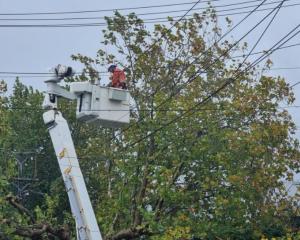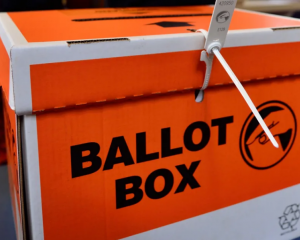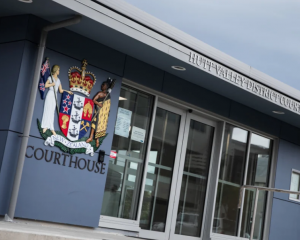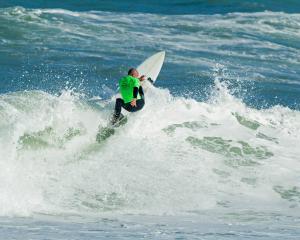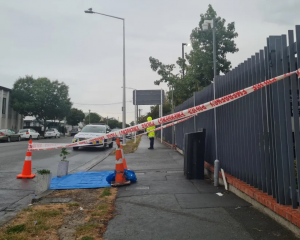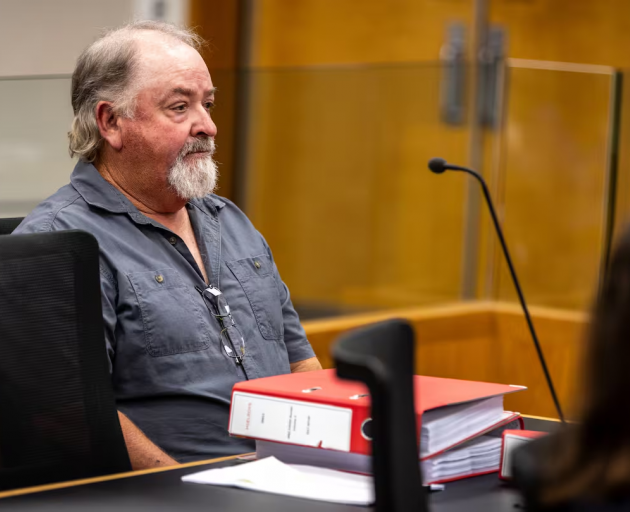
As the long-awaited trial against Lance Goodhew, skipper for the recreational fishing boat the Enchanter, began in the Whangārei District Court today, two charges against his business were dropped.
He’s now facing a single charge laid by Maritime New Zealand of breaching his duties as a worker on the vessel and in doing so, allegedly exposing individuals to a risk of death or serious injury. The charge carries a maximum penalty of a $150,000 fine.
Goodhew’s fishing boat was hired by a group of friends for a five-day fishing trip in what one described as “the trip of a lifetime”.
Goodhew took the group 80km North to the Three Kinds islands from Mangonui on March 17, 2022, for three days of big game fishing before deciding to return on March 20, 2022.
MetService had issued an “orange warning” for 24 hours on that day, meaning the weather was rough with high winds and rain and as Goodhew came around North Cape, the Enchanter capsized after being hit by a rogue 10m wave.
An emergency beacon was activated at 8 pm and after a lengthy rescue operation that went on for days, five men lost their lives.
They were Geoffrey James Allen, 72, Michael Patrick Lovett, 72, Richard Eldon Bright, 63, and Mark Keith Walker, 41, all from Cambridge, and Mark Kenneth Sanders, 43, from Te Awamutu.
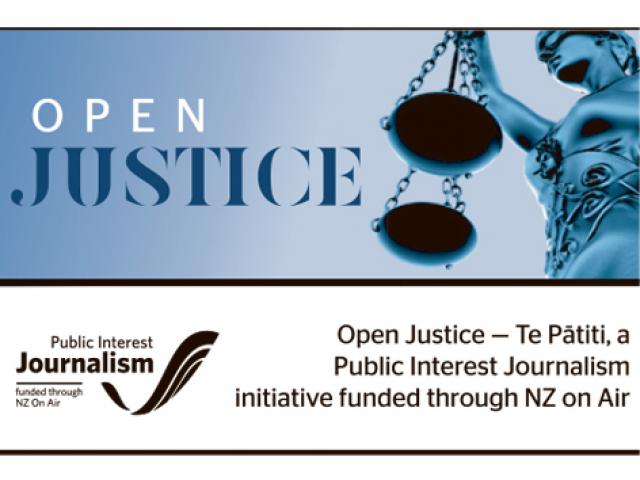
“This is a serious maritime tragedy and the other people who survived who, no doubt, went through a traumatic ordeal including Mr Goodhew, so I acknowledge them and I also acknowledge and welcome the families and victims.”
Maritime New Zealand’s lead counsel Sam McMullan first applied to dismiss the charges against the business L & M Goodhew Ltd based on having no evidence to offer.
Judge Rzepecky dismissed the charges under section 147 and the trial proceeded on the single charge against Goodhew.
McMullan opened the case by saying Goodhew breached his duties under the Health and Safety Act 2015 and in doing so, exposed passengers to the risk of death or injury.
“The Enchanter should never have been where it was. The weather was poor and a significant front was passing, the conditions were described as ‘sloppy, gnarly and scruffy’, McMullan said.
McMullan said the weather was a key topic of discussion throughout the trip and Goodhew himself had interpreted the weather as “nasty”.
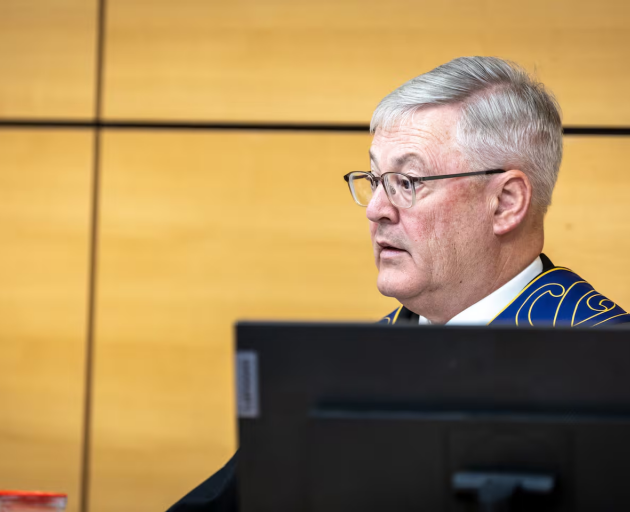
Despite that knowledge and armed with multiple weather navigational devices, Goodhew took his passengers 80km North and over coming days, the weather was upgraded to a gale warning.
McMullan said he discussed the weather regularly with his passengers and was also receiving six hourly updates from his onboard weather systems.
The case will hinge on the decisions Goodhew made at the Three Kings Islands and North Cape that allegedly contributed to the catastrophic outcome.
The weather passing over the Three Kings had reportedly been so bad, that multiple vessels in the area anchored down but at around 1.30pm on March 19, 2022, Goodhew made the decision to leave.
McMullan said although the weather had slightly improved, the sea was still rough and most seafarers understand the risks presented after a front has passed.
At around 7.40 pm Goodhew was recorded communicating with Maritime Radio that the weather was a ‘bit gnarly’.
“The fact the Enchanter arrived in North Cape a short time after the front had passed through should have given him pause to concern that the area may still be encountering the effects of weather that had passed through,” McMullan said in openings.
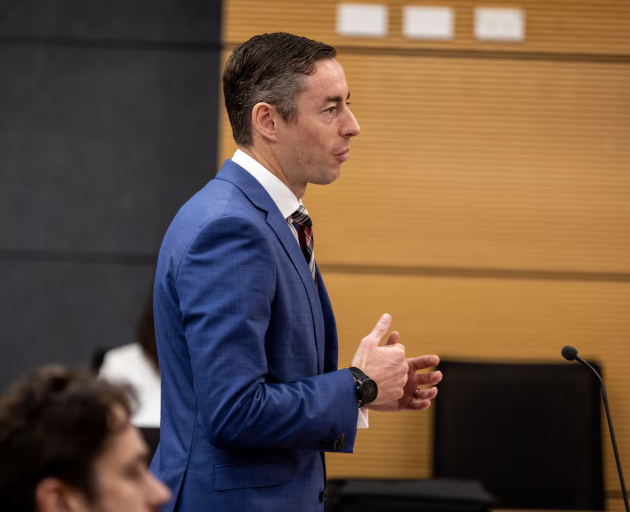
Although Goodhew said the Enchanter was in around 50 metres of water, MetOcean disagreed and will give evidence the water depth was likely less than that.
McMullan said Goodhew was also within three nautical miles of the coastline and it was those factors combined at North Cape that placed Goodhew’s passengers at a reasonable risk of injury or death.
“It’s all of those factors together, he was travelling in the conditions he was, the proximity he was to North Cape in low light, all increased the risk of the situation.
“He could not see an approaching large wave if one was to approach and the vessel was not able to deal with any wave it encountered,” McMullan said.
‘Catastrophic’ Consequences
Between 7.40pm and 8pm a wave described by Goodhew as “taller than the roof” struck the Enchanter, ripping the cabin and flybridge from the hull.
At the time, deckhand Koby O’Neill was cooking dinner on the deck, Peter Ward was monitoring lines out the back, Mark Walker was in a cabin sleeping and the other men were sitting around the cabin.
Goodhew, Ben Stinson and Kobe O’Neill clung to the flybridge and Jayde Cook and Peter Ward clung to the hull.
The two groups were separated and 10 minutes after the wave hit, the emergency beacon floated past Cook and Ward.
“By a matter of good luck and perhaps an act of God for it to float by them,” McMullan said.
The beacon was activated but took several hours until rescue helicopters arrived.
“The important point about the improving weather was, it didn’t mean the risk had been eliminated.
“The marine environment is a complex one and it takes time to go into effect. Based on the information he had and not exercising a degree of care in his decisions.
“As we see the consequences have been catastrophic.
“He breached the act. It is his duty to positively take reasonable care. That is an encapsulation of what the case is about,” McMullan said.
Fletcher Pilditch KC for Lance Goodhew gave a brief statement for his client on day one of the trial. Photo / Michael Craig
The lawyer for Goodhew, Fletcher Pilditch KC, said his client firstly wanted to acknowledge the deceased and also the survivors and the trauma they have lived through together.
Pilditch said the prosecution needed to prove beyond reasonable doubt that no responsible skipper would have left the Three Kings.
“There’s a risk in cases like this where one mariner would have made one decision and another would have made another.
“What the prosecution is trying to do is, based on the information, no reasonable mariner would have made that decision. We have the fact two people would make two different decisions, doesn’t make it unreasonable.”
‘Complex and challenging’ decisions
Pilditch said the decisions at North Cape were more complex and he challenged the prosecution’s three nautical mile theory placing more risk on the vessel.
“The prosecution are setting its mark or raising a flag that there is a distinction to be drawn on the three nautical miles outside and within, but they need to show why it’s unsafe or risky to be closer than three and generally known to a confident master,” Pilditch said.
Maritime New Zealand will call 14 witnesses over the next week and a half including survivors Peter Ward, Jayde Cook and Ben Stinson along with the Florence Nightingale skipper, Matt Gentry.
Maritime New Zealand investigators Tracy Phillips and John Maxwell and MetOcean Scientist Dr Brett Beamsley are also scheduled to be called.


